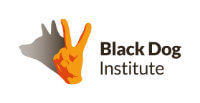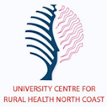Written by Angela Sheridan, WellMob
January 26, 1788 is the day Sir Arthur Phillip raised the British flag at Warrane (Sydney Cove) to claim the land as a British Colony. This day marks the beginning of a long and brutal colonisation of Aboriginal & Torres Strait Islander (First Nations) people and country. Hence, January 26 is often celebrated as ‘Survival Day’ or commiserated as ‘Invasion Day’ by First Nations people.
Did you know?
January 26 has only been celebrated as a National Public Holiday for Australia Day since 1994. Prior to that it was held on the closest Monday to Januray 26th forming the great Aussie traditional past time of a ‘long weekend’!
Each year on January 26 people in Australia celebrate what is referred to as ‘Australia Day.’ This day commemorates the arrival of the first fleet on Australian shores and the early days of the colony now known as Australia.
However, for many Aboriginal and Torres Strait Islander people and their non-Indigenous allies, this day is not celebrated. It is more often recognised as Survival or Invasion Day (see below). This is because it marks the beginning of trauma and disconnection from culture, country, family and community resulting from colonisation. For many it is a day of mourning due to the history that followed the arrival of Sir Arthur Phillip and the first fleet.
January 16 holds different meaning and different names for First Nations people
Day of Mourning
The creation of the Day of Mourning on 26 January 1938 was as a protest by Aboriginal Australians marking the 150th anniversary of the arrival of the First Fleet, and the beginning of the colonisation.
Read more here: Day of Mourning protests held in Sydney – Deadly Story
Invasion Day
For many First Nations people this day is recognised as Invasion Day because from this day in 1788 onwards, First Nations people suffered massacres, land theft, stolen children and widespread oppression at the hands of the colonising forces.
Survival Day
This term celebrates the strengths of Aboriginal & Torres Strait Islander people, our cultures, practices, skills, and contributions. It recognises our survival from past extermination and assimilation practices. This includes the impact of the Stolen Generation on our people and our families. It acknowledges that we are a proud and strong people.
Many Australians have some understanding of the violence and devastating impact of colonisation since 1788. However, not everyone understand that the effects of colonisation are still felt today. There is a need for truth telling about the history of Australia and the experience of First Nations people. This will lead to a better understanding of inter-generational trauma and its ongoing impacts still felt today. This is evidenced by a disproportionate rates of First Nations chronic disease, poor mental health, addictions, overcrowded housing, incarceration and inequality in education and employment.
To many Aboriginal and Torres Strait Islander people there is little to celebrate on Australia Day. Instead, January 26th is a date that commemorates a deep loss—of land, family, and sovereign rights. As such, First Nations people have consistently used that day to fight for their sovereignty, push for a deeper recognition of their history and celebrate their Indigeneity.
During this sensitive time, it is important for First Nations people to take care of their own wellbeing and of those around them. We can do this by creating safe Blak spaces both in our community and digitally by:
- Following Blak artists, activists, musicians, sports people, and celebrities on social media.
- Listening to Blak music and podcasts.
- Watching movies that celebrate our survival and resilience.
- Bening in our supportive community at a survival/invasion day event.
- Surrounding ourselves with family and friends and minimising exposure to “typical” Australia Day festivities by not attending public spaces.
- Being mindful of creating safe online social media spaces.
- Checkin into WellMob website for self-care strategies such as:
What can Non-Indigenous people do to support and stand in solidarity with First Nations people during this time?
What is an Ally?
An ally is someone who supports, empowers, or stands up for another person or a group of people. Through their actions, an ally can change attitudes, behaviours, policies and practices that impact marginalised groups. Being an ally to First Nations peoples is about moving forward together in meaningful acts of reconciliation.
6 ways to be a good ally this Australia Day:
- Do you know whose country you are on?
- Have you acknowledged and thanked the traditional owners?
- Do your own research about the impact of colonisation of First Nations people. Sit in the discomfort of anything you didn’t know e.g. massacres, slavery, stolen generations. Acknowledge that if you didn’t know something about the impact, be mindful not to centre your own uncomfortable feelings in this process to First Nations people. Australian Institute of Aboriginal and Torres Strait Islander Studies (aiatsis.gov.au), Common Ground, Healing Foundation, and WellMob are good places to start exploring online resources and First Nations perspectives about connecting to culture and healing from trauma.
- Follow First Nations social media, listen to podcasts and music, watch movies, docos and read books from First Nations authors/ creatives.
- Use your own social media platform to raise First Nations voices by sharing content from First Nations people.
- Attend a local Invasion/ Survival Day rally and lend your support to your First Nations brothas and sistas through practical help.
This blog was written from a First Nations perspective and does not represent the views of all Aboriginal and Torres Strait Islander people. It is offered as an independent piece for us all to reflect on what January 26 may mean to the traditional owners of the lands and waters we now call Australia.





